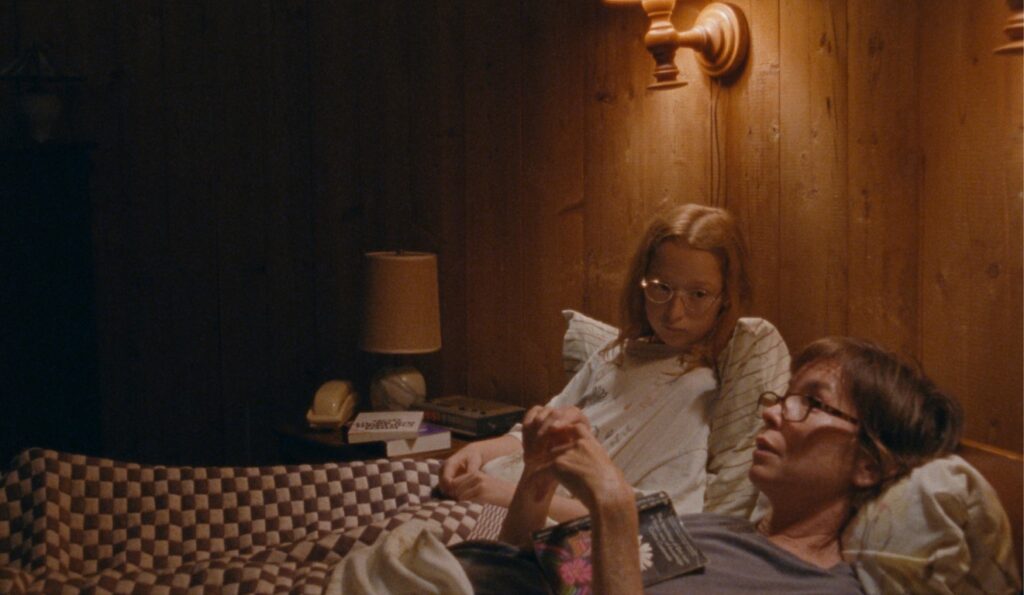Read also:
How to Watch FX Live Without CableHow To Watch AMC Without CableHow to Watch ABC Without CableHow to Watch Paramount Network Without CableJanet Planet captures a girl caught in her mother’s orbit in the summer of 1991 as she struggles with what to make of the people who enter her mother’s life (friends, boyfriends, strangers) and what to make of herself. It’s also a brutal and empathetic reminder that of all the possible ages to be, 11 might be the worst, and in Janet Planet, 11-year-old Lacy would be the first to agree.
As desperate as adults are to regress to a world before endless Zoom meetings and the monotony of laundry, it’s easy for us to forget how utterly powerless you are at 11. It’s an age where adults still control nearly every facet of your life, and you bear constant witness to their bad decisions with no ability to either help or remove yourself from the situation.
“Every moment of my life is hell,” Lacy tells her mom, Janet, and if you’re honest with yourself about what being 11 actually felt like, you know it’s the most acceptable of hyperboles. But Lacy, observant and thoughtful, shows the kind of understanding I never did at that age when she adds, “But I don’t think it’ll last, though.” Creating moments of clear-sighted vulnerability like that is what playwright and now first-time director Annie Baker does best.
Baker’s dialogue is what really brings that vulnerability to life. Innocuous snippets of daily life blend with intimate declarations giving the impression that the characters are desperate for a connection they don’t really know how to create. When Janet and Lacy open up to each other, instead of illustrating their bond it really just highlights how lonely they both are. Thankfully, the cast is more than up to the task, inhabiting the characters of Janet Planet like they’d never been anyone else.
Julianne Nicholson (Mare of Easttown, August: Osage County) brings effortless naturalism to Janet. She artfully expresses Janet’s openness while making it clear that there’s even more left unsaid—a fine line to walk. But it’s Zoe Ziegler as Lacy who’s the real knockout.

Lacy is often a quiet and thoughtful observer of the world around her. As she notes the adults passing in and out of her life, we take note of her. Ziegler’s wide-eyed and thoughtful performance has the kind of unassuming magnetism most actors would kill for. The camera can’t help but stay close to her in these moments, more interested in how Lacy sees than what she’s seeing.
When the performances combine with the film’s warm, sunbleached texture and a nearly silent soundtrack, you feel more like you’re watching a memory than a movie. That’s because Baker is trying to bring a melancholy nostalgia to life, focusing on childhood loneliness and boredom instead of classic kids-on-bike adventures. This is often to the film’s benefit, but sometimes Baker’s script can feel too focused on the feel at the expense of the drama.
There are a handful of moments where you can almost feel the sun on your face and the grass underfoot, but it’s harder to say what a character wants. Unfortunately, vibes are no substitute for dramatic tension or clarity. But these missteps are few and can’t overshadow the larger achievements of Janet Planet. It’s lazy humid days and mothers and adolescent ennui and the frustration of love and the weight of anxiety all bottled up like bug juice for audiences to swig. Watch it as your welcome respite from summer blockbuster fare, and let Baker’s take on 1991 wash over you and fill you with excitement for whatever she does next.
Janet Planet hits theaters Friday.